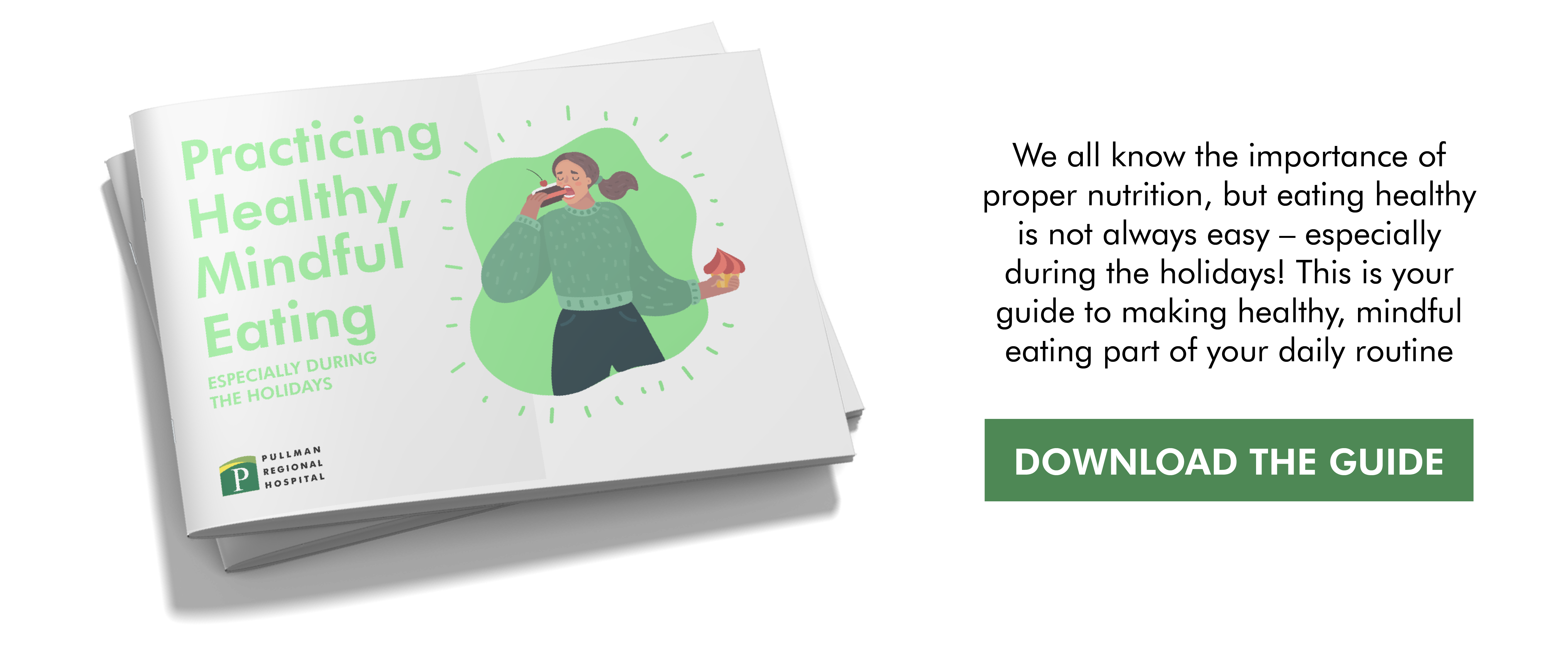“Comfort food” has that name for a reason. People often turn to sugary, fatty, greasy foods when they’re feeling down. While it may provide temporary relief, eating those foods too often is significantly detrimental to one’s health.
Unfortunately, the pandemic has set many people into a perpetual cycle of consuming comfort foods. It’s estimated that 71 million Americans gained weight in 2020. Joyce Marshall, Director of Nutrition Therapy at Pullman Regional Hospital, wants people to know the first step towards overcoming unhealthy eating behaviors is to acknowledge the shift that’s occurred over the last many months.
“We're not here to shame anyone or really even to focus too much on the weight itself. What we are here to say is the pandemic created this shift. A shift in self-care, which is a reflection of the changes, thoughts, and behaviors we've all experienced as a result of the pandemic,” she states. “If you're among those who have gained weight in 2020, you're not alone. But now, you have an opportunity to recalibrate, reconnect, re-align with your values and with the choices that are ultimately going to create a state of well-being in your life.”
Understanding the Underlying Causes of Weight Gain
Weight gain isn’t simply a matter of “willpower.” In most cases, the underlying cause relates to an imbalance—or lack of balance—in connecting your thoughts and behaviors to your true personal goals. Many choices we make throughout the day are unconscious or subconscious and may not align with what we value.
Melissa Francik, Registered Dietician at Pullman Regional and Board-Certified Health and Wellness Coach, explains the need for pause and an honest self-assessment. “We could look inward and ask ourselves, ‘What is most important to me? What do I value most in my life?’ Then, ‘What in my life currently supports my values and what in my life currently takes me away from these values?’”
This exercise takes focus and mindfulness. It also involves a bit of research. Leah Haak-Beck, Registered Dietician at Pullman Regional and Certified Diabetes Care and Educational Specialist, encourages people to ask themselves some questions, such as:
- What is contributing to this behavior?
- Has something changed in my environment, or maybe even in my mood?
- What need might I be trying to meet from this eating?
“It’s really key to be curious about what you're observing and not place judgment, just to notice. Maybe you notice you snack when you're bored. Maybe it's when you're stressed. Maybe the food's just there and it looks good. There are a lot of reasons why this might be happening.”
Haak-Beck also wants people to know that food doesn't have to be just for fuel. “Eating for enjoyment is part of life. It is part of being a human,” she adds. “But, maybe ask yourself, ‘I’m wondering if I might want to go for a walk; if that would feel good?’ Or, taking a nap, a break, perhaps a bath—whatever you choose—it’s about looking inward, being aware, and making choices based on what feels good.”
You're Not in this Alone
The good news is, no one has to approach weight loss or weight control on their own. There are a myriad of helpful online resources to guide your efforts. The Academy of Nutrition and Dietetics website features recipes as well as videos that are geared towards a “beginner’s” cooking skills.
Marshall also enjoys the Oldways website, which highlights wholesome ingredients. “They're globally inspired and you can search their recipes using a quick and easy tag. So, that's handy,” she notes.
Two of her other favorites, especially for those with more of a chef-driven palate or “sophisticated” repertoire, include Rebecca Katz and Feasting at Home with Sylvia Fontaine. “Both of those are just so beautifully photographed. And they really entice me to spend more time in the kitchen,” she shares.
We also offer a free, downloadable guide to healthy, mindful eating.


